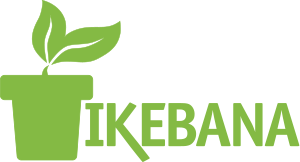What Defines an Information Portal?
An information portal serves as a centralized online platform designed to aggregate, organize, and deliver relevant digital resources to users. Unlike traditional websites, these portals prioritize seamless data access by integrating multiple sources into a unified interface. Whether for businesses, governments, or educational institutions, an information portal acts as a gateway to critical information, ensuring users can navigate complex data efficiently.
Key Features of Effective Information Portals
Successful information portals emphasize a user-friendly interface, enabling visitors to locate content quickly. They often include customizable dashboards, search functionalities, and secure login systems. Additionally, these platforms leverage advanced algorithms to curate personalized digital resources, enhancing overall usability. A robust information portal also ensures compatibility across devices, offering consistent performance on desktops, tablets, and mobile phones.
Why Information Portals Matter for Businesses
In today’s fast-paced environment, businesses rely on information portals to streamline operations and improve decision-making. These platforms consolidate internal tools, external databases, and real-time analytics into one accessible hub. By centralizing data access, organizations reduce redundancy, boost productivity, and empower employees with actionable insights. An effective information portal also strengthens collaboration by allowing teams to share knowledge seamlessly.
How Information Portals Enhance User Experience
A well-designed information portal transforms how users interact with digital resources. Its intuitive navigation reduces friction, while features like filters and saved searches help users find information faster. Portals also support multilingual interfaces and adaptive layouts, ensuring inclusivity. By prioritizing user needs, these platforms foster engagement and loyalty, making complex tasks feel effortless.
Trends Shaping the Future of Information Portals
The evolution of information portals is driven by advancements in artificial intelligence and cloud computing. Emerging trends focus on predictive analytics, automated updates, and immersive interfaces like augmented reality. For instance, platforms now integrate AI-powered chatbots to assist users in real time. As demand grows, the role of an information portal extends beyond data access to becoming a dynamic, interactive experience. winport casino
Security Considerations for Information Portals
With increased reliance on digital resources, securing information portals is paramount. Implementing encryption, multi-factor authentication, and regular audits helps safeguard sensitive data. Developers must also address vulnerabilities like phishing attacks and unauthorized access. A trusted information portal balances convenience with stringent security protocols to maintain user confidence.
Best Practices for Designing an Information Portal
Crafting an effective information portal begins with understanding user needs. Start by mapping out common queries and structuring content logically. Prioritize a user-friendly interface with clear menus and minimal clutter. Incorporate feedback mechanisms to refine the platform continuously. Testing with real users ensures the design aligns with expectations, making the portal both functional and intuitive.
The Role of AI in Modern Information Portals
Artificial intelligence revolutionizes information portals by enabling smarter data access and personalization. AI-driven tools analyze user behavior to recommend tailored digital resources, improving efficiency. Voice recognition and natural language processing further simplify interactions, allowing users to request information verbally. These innovations ensure an information portal remains agile and responsive to evolving demands.
Common Challenges in Implementing Information Portals
- Integrating disparate data sources into a cohesive platform can be technically complex.
- Maintaining up-to-date digital resources requires continuous monitoring and updates.
- Ensuring scalability to accommodate growing user bases without compromising performance.
Case Studies: Successful Information Portal Examples
Leading organizations like Google and Microsoft have pioneered information portals that redefine data access. Google’s Knowledge Graph aggregates billions of facts into a searchable format, while Microsoft’s SharePoint centralizes business operations. These examples highlight how a well-executed information portal can transform how users engage with digital resources.
How to Choose the Right Information Portal for Your Needs
Selecting an information portal involves evaluating features like customization options, integration capabilities, and security measures. Consider the size of your organization and the complexity of your data needs. Free trials and demos can help assess whether the platform aligns with your goals. Ultimately, the best choice balances functionality, cost, and long-term scalability.
The Impact of Information Portals on Data Accessibility
Information portals democratize data access by breaking down silos between departments and external stakeholders. They enable real-time sharing of insights, fostering transparency and informed decision-making. Whether for healthcare professionals accessing patient records or researchers analyzing global datasets, these platforms ensure critical information is available when needed.
Frequently Asked Questions About Information Portals
- What distinguishes an information portal from a regular website? An information portal integrates diverse digital resources into a unified interface, whereas websites typically serve singular purposes.
- Can small businesses benefit from information portals? Absolutely; these platforms scale to meet varying needs, offering flexibility for startups and enterprises alike.
- How secure are modern information portals? Leading platforms employ encryption and authentication protocols to protect sensitive data.
Emerging Technologies Influencing Information Portals
Blockchain technology enhances transparency by verifying data integrity, while quantum computing promises faster processing speeds. These innovations will shape the next generation of information portals, making them more secure, efficient, and capable of handling vast amounts of data access.
Conclusion: Embracing the Power of Information Portals
As the digital landscape evolves, information portals remain indispensable tools for managing data access and optimizing user experiences. Their ability to unify disparate digital resources into a user-friendly interface ensures they stay relevant across industries. By adopting best practices and leveraging emerging technologies, organizations can harness the full potential of these platforms to drive innovation and growth.

